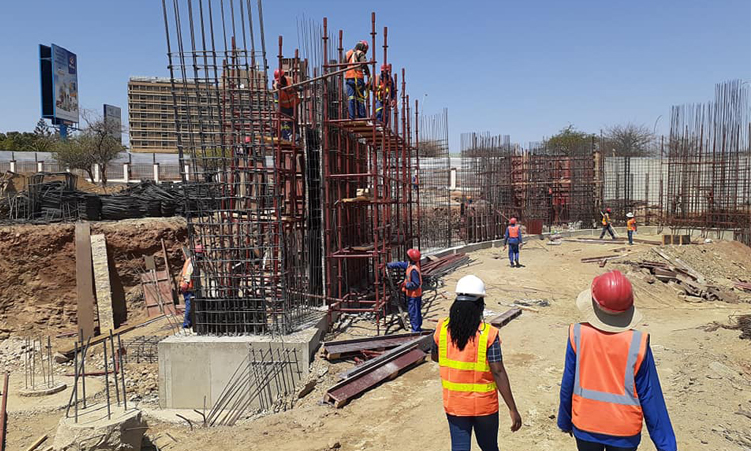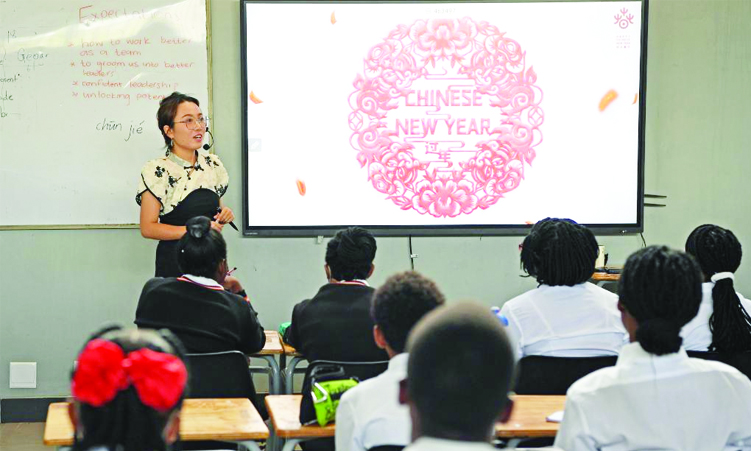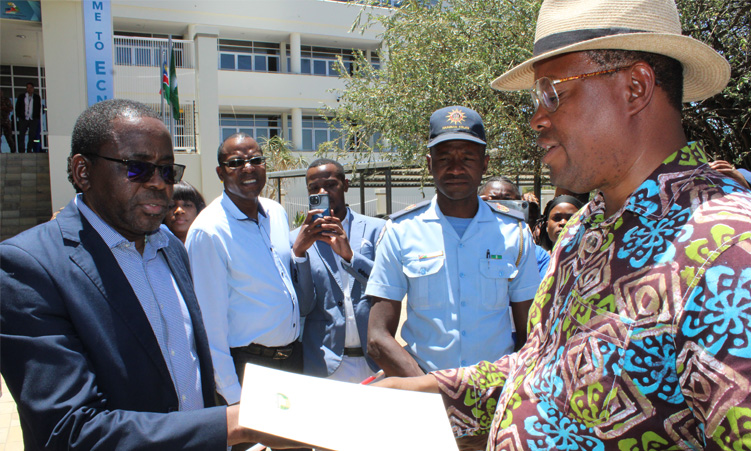Political analysts say Affirmative Repositioning’s (AR) plans would require massive funding, which the country does not have.
AR launched its manifesto over the weekend at Katima Mulilo, detailing plans to turn the country’s misfortunes into opportunities for progress.
Party leader Job Amupanda believes the AR can address the country’s current challenges without depending on donor funding.
“We are self-defining, as we decide for ourselves what we think is the best we need to do for our country.
We don’t take anything from outside and internalise it.
That’s why, if we have a lot of money, we would be doing a lot of work. We have already done so much for the people with the little resources at our disposal and we will continue doing that even after elections,” he said.
Amupanda highlighted what he termed a primary example of the country’s misfortunes, that the ingredients to make a simple vetkoek are being imported from South Africa, resulting in price inflation.
“We don’t produce wheat or cooking oil, so the prices of these goods are increasing every day as we import them. However, with the right leadership, we can turn things around and start producing these essential goods locally,” he said.
Responding to questions by The Namibian yesterday, political analyst Henning Melber noted that some of the proposals in the AR’s manifesto are good and promise to improve a lot. However, the party does not state how it will fund these achievements when the total debt of the country has reached unsustainable levels and requires fiscal prudence.

WHERE WILL AR GET THE FUNDS?
“The question remains where they will get the funds to build the Cape Fria port, the two universities, two national sport stadiums, double the number of referral hospitals, district hospitals and clinics, plus additional investments in education that require budgetary allocations.
“The fiscal cake is limited, and other expenses are also required for further suggested reforms. The suggested tax reforms are a far cry from financing all of this,” he said.
Melber highlighted that the AR’s plan to remove the redline would have massive implications for trade relations with agricultural products, most importantly, meat.
“The manifesto mentions with no word the possible setbacks in terms of trade balances, but also the economic situation of farmers,” he said.
Another political analyst Johan Coetzee says the AR’s plans to declare all indigenous languages as national languages and permit their use in parliament does not make financial sense, as it would require funding, which could have gone to other serious challenges.
“The opportunity cost of such a promise will not make socio-economic sense compared to higher priority challenges, such as unemployment, education and substandard healthcare,” he says.
Furthermore, he says banning/regulating foreign land ownership will scare investors away and slow development.
“As for their plans to review and renegotiate agreements on natural resources, I find that it’s not realistic and will equally scare investor confidence.
It will not speak well for private property rights and consistency in the application of the law. It will be a disastrous move, as we have learned from Zimbabwe and Venezuela,” he says.
Coetzee, further critiques the AR’s once-off one-year tax holiday for companies that create 100 permanent jobs, saying it will result in the increase of artificial job creation and the layoff of workers.
“The consequences of incentivising labour would result in corruption and the abuse of people. It will increase unemployment and labour insecurity,” he says.
Coetzee, however, agrees with the removal of tax on pension, as taxing pensions is robbing people to justify the luxurious life style of politicians and bureaucrats.
He says the proposal to increase public spending on housing from 0.1% to 5% of gross domestic product would be sensible if everything correlates with affordable and alternative housing.
“In respect to the introduction of term limits for the chief justice, it would reduce abuse of power and conflict of interest.
The previous election outcome is still a fresh memory of growing distrust in the judiciary, as supported by a recent Afrobarometer Survey,” he adds.
Stay informed with The Namibian – your source for credible journalism. Get in-depth reporting and opinions for
only N$85 a month. Invest in journalism, invest in democracy –
Subscribe Now!






